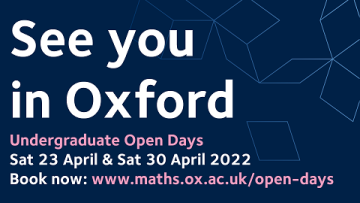14:15
Open FJRW theory
Abstract
I will describe joint work with Tyler Kelly and Ran Tessler. FJRW (Fan-Jarvis-Ruan-Witten) theory is an enumerative theory of quasi-homogeneous singularities, or alternatively, of Landau-Ginzburg models. It associates to a potential W:C^n -> C given by a quasi-homogeneous polynomial moduli spaces of (orbi-)curves of some genus and marked points along with some extra structure, and these moduli spaces carry virtual fundamental classes as constructed by Fan-Jarvis-Ruan. Here we specialize to the case W=x^r+y^s and construct an analogous enumerative theory for disks. We show that these open invariants provide perturbations of the potential W in such a way that mirror symmetry becomes manifest. Further, these invariants are dependent on certain choices of boundary conditions, but satisfy a beautiful wall-crossing formalism.



